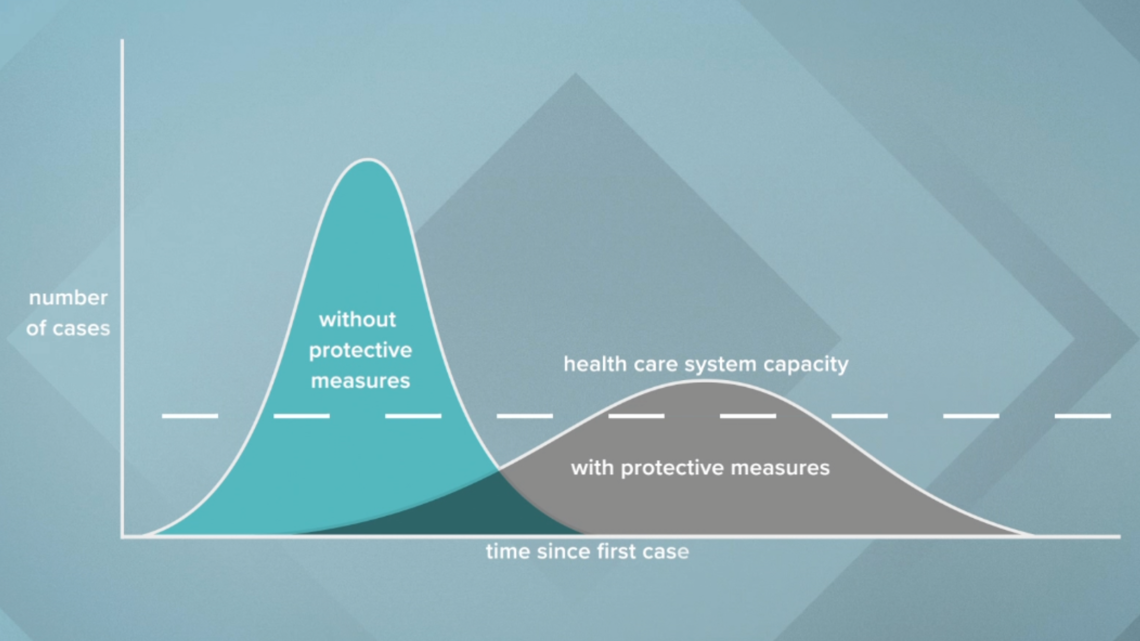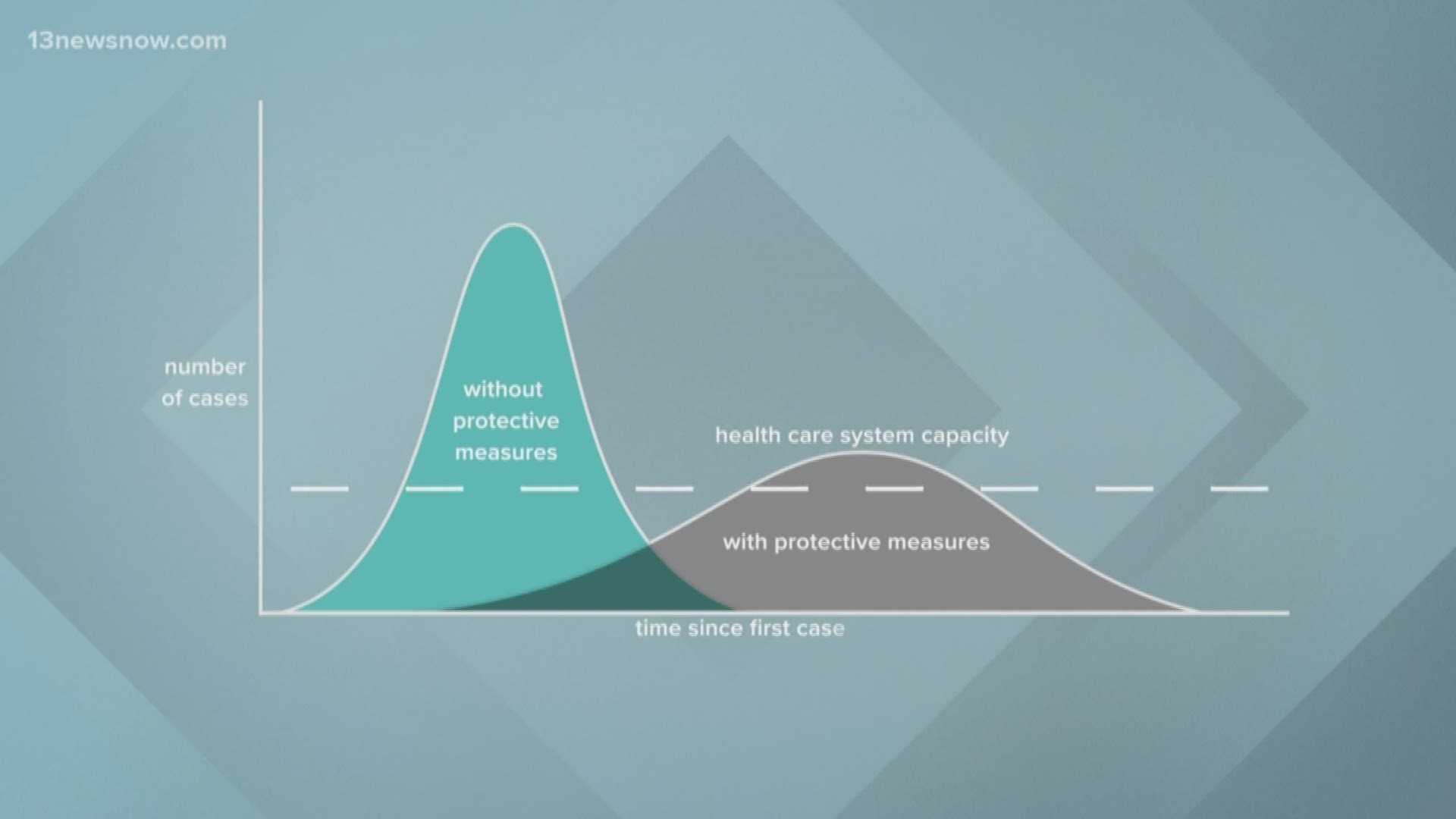NORFOLK, Va. — Canceled classes, postponed events, and self-quarantines: they're all designed to contain and slow the spread of COVID-19.
"All of those activities have been aimed at slowing this down, so there are less patients hitting the system all at the same time," said Brian Martin, Director for the Master of Public Health program at EVMS. "And that would help ease the strain that could otherwise occur on the healthcare system."
Without protective measures, public health experts warn that the number of coronavirus cases could exceed the limits of the healthcare system.
With protective measures, experts say we can treat more patients, reduce risks and limit the overwhelming of hospitals nationwide.


"I'm hoping these rather extreme measures that we're taking are really going to pay off later," Martin said.
Martin said COVID-19 is a virus like the flu, but as a new virus, medical experts aren't sure how to predict its behavior.
"With COVID-19 there's not only no treatment and no cure but no inoculation," he said.
If looking at the "Flatten the Curve" graph, Martin said he hopes the preventative measures keep the spread of cases below the dotted line.
"What we want to see is that the load doesn't overwhelm the ability to treat the patients," he said. "We could see a lot of sick people in our community and that death rate could go up and we don't want that."
At Wednesday's House Oversight and Reform Committee Hearing on Coronavirus Response, immunologist Dr. Anthony Fauci said the COVID-19 death rate is "10 times more lethal than the seasonal flu."
Fauci said without extreme preventative measures, the spread of coronavirus could be much worse.

